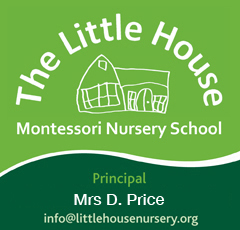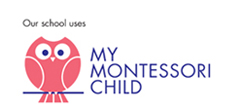Our Montessori Classroom
Montessori philosophy is a child-centred developmental educational method, based on theories of child development originated by Italian educator Maria Montessori (1870-1952).
Maria Montessori believed the early years of a child’s life to be the most important for developing the child’s intelligence.
Entering our classroom, you will immediately notice a calm but busy atmosphere, where the children are involved in small group or individual activities. The equipment they are using was designed by Maria Montessori to develop the child’s concentration, co-ordination and independence. The children are given freedom within a structured environment to choose activities that interest them, and to work with the materials for as long as they need. We support the need for each child to develop their learning at their own individual pace.
Montessori teachers closely observe each individual child, kindly and gently directing them in their learning rather than entertaining them or telling them what to do. When a teacher notices an interest awakening in the child, she introduces him to an activity that will satisfy his/her learning desire.
Nothing in our classroom is there by accident; every activity is there for a reason and has a specific purpose. Specially designed Montessori activities aid the child’s development of their sensory, numeric, language, scientific and practical skills. Current research in paediatric neuropsychology concurs with Maria Montessori's observation that the child's brain is actually constructed by movement. In order for children to make sense of the world, they need to experience with their senses, need to touch, move, manipulate, smell, taste and construct. All Montessori activities require the child to be active, or ‘hands-on’.
In our classroom, mistakes are a means of learning. 'How could I make this work?' is the question which keeps our children busy and motivated. "I did it all by myself" is a phrase we hear every day accompanied with the big smiles on our children's faces. Our children do not need rewards or stickers, but develop their self-esteem and self-respect naturally, and children who feel self-respect, naturally learn to respect others as well.








